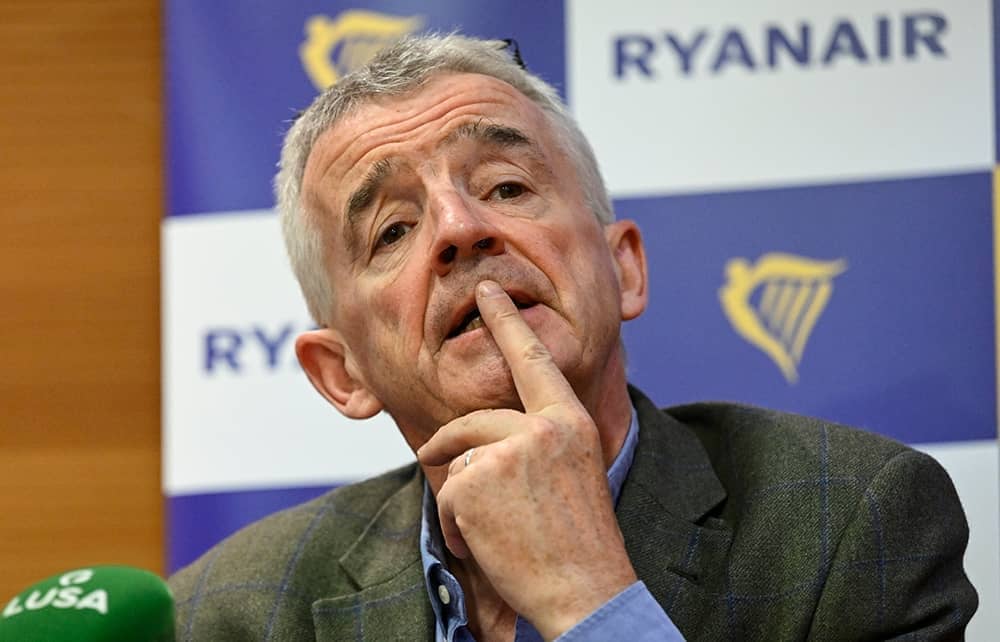Stock markets are tumbling, but given the tide of economic news, that’s hardly surprising. The S&P 500 index dived into bear market territory – 20 per cent down since January – after a rise in US inflation for May. Our own FTSE indices reacted badly to an unexpected 0.3 per cent drop in UK GDP for April. Interest rate rises predicted on both sides of the pond this week will make investors jumpier still.
So expect further falls in markets that have been driven by weight of cheap money to stay unnaturally high despite an increasingly bleak backdrop. And wait for the turn. When might that be? When investors think they can see beyond the inflation spike and pick value among depressed stocks. And when central banks look commanding again – and government looks at least minimally competent. On the timing of that last factor, I won’t even hazard a guess.
Flying blame game
At the airport – any airport you care to name – recriminations fly more frequently than passengers these days. Over the recent holiday weekend, 500 UK flights were cancelled and many across Europe, reflecting the global problem that more than two million people left the aviation workforce during the pandemic, leaving huge gaps to be refilled.
Transport Secretary Grant Schapps accuses airlines of having ‘seriously oversold’ flights they could not provide, having been too slow to restaff. Willie Walsh, the former BA boss who now heads IATA, says politicians are ‘idiots’ if they think carriers can scale up so fast after two years of stop-start ministerial rule-tinkering. Luis Gallego – Walsh’s successor at IAG, the conglomerate that owns Iberia, Aer Lingus and BA – says recovery has been relatively smooth in Spain and Ireland, but ‘a nightmare’ in the UK.
Mind you, Virgin Atlantic’s Sir Richard Branson thinks BA were up to their old dirty tricks in the tussle for state help: ‘Behind the scenes, they were sticking the knife in.’ Meanwhile, better-staffed airlines such as easyJet blame cancellations on understaffed ground-handling firms – but ground-handlers blame airlines for squeezing their contracts. And Jozsef Varadi of Wizz Air blames the whole thing (someone had to) on Brexit.
Who would I call in to knock all these squabbling heads together? It would have to be Michael O’Leary of Ryanair, who has already suggested bringing in the army to eliminate three-hour security queues. I’ve always liked the story of his response when the taoiseach of the day rang to ask him to join ‘crisis talks’ over a Dublin baggage-handlers strike: ‘Eff off and open the airport.’ That’s the spirit needed to save our summer holidays.
The parable of Cazoo
‘Welcome to the Cazoo Derby’ is a slogan that must have irritated many race-goers – and been read by others as an omen. Businesses that gain sudden prominence by over-advertising often stumble, because consumers tire of repetitive messages if they don’t love the product, and because stratospheric marketing costs make breakeven so much harder to reach.
Combine that with tech investors’ propensity to chase the latest, hottest digital stock and you have the parable of Cazoo: the online used-car platform that launched with éclat in 2019, raced to an $8 billion valuation last year, and has now seen its shares tumble by 90 per cent.
Cazoo was the latest venture by the serial UK start-up player Alex Chesterman, whose previous hits included LoveFilm and Zoopla. It floated in New York by merging with a Spac (or ‘blank cheque’ listed company, created to harvest investors’ cash) and rode the lockdowns with relentless TV ads promoting car-shopping from the sofa. But now buyers have returned to the showrooms of traditional dealerships, Cazoo has had to shed 750 jobs as part of a £200 million retrenchment.
The fall rings a warning bell for investors to beware Spac-related stocks, many of which have disappointed. But this is a particular tale of how £1,300 of marketing spend per car sold, for a tiny turn on each one, has made the brand a household name without actually making it a successful business. Chesterman is a shrewd operator with cash in hand who may hold out by making Cazoo less flashy and more terrestrial. But if it was a Derby horse, you’d have to say it was wildly mispriced before the start.
Food factory or green dream?
This column has been a friend of the farmer ever since I was invited to help a Yorkshire neighbour (‘my man on the big crop-sprayer’, as he sometimes appears) write a column for a well-known farming title. I learned a litany of acronyms to do with yield enhancement and much about the psychology of a sector that feels undervalued by grocery shoppers, misrepresented in glossy television series by and for townees, and repeatedly mistreated by politicians. ‘Same old story,’ says my man in response to the government’s new food strategy. ‘What do they want: a food factory or a rural playground?’
What he means is that farmers need a clear regulatory and financial framework within which they can produce more food in sustainable ways, at margins that allow for investment in new technologies and with protection against the cheap imports that are the implied promise of post-Brexit free trade deals. The war in Ukraine might have brought home the food security message, says my chum, ‘but it appears not’.
Instead, here’s another cartload of verbal slurry about making ‘greener land’ while ‘maintaining our world-leading domestic standards by using a range of levers within our bespoke trade agreements’. The government’s own food adviser Henry Dimbleby dismissed the published paper as a thin shadow of his own recommendations; campaigners against unhealthy processed food sniffed a shameless cave-in to food industry lobbyists; and for Labour’s Jim McMahon, ‘To call it a food strategy is bordering on the preposterous.’ Enough said.







Comments